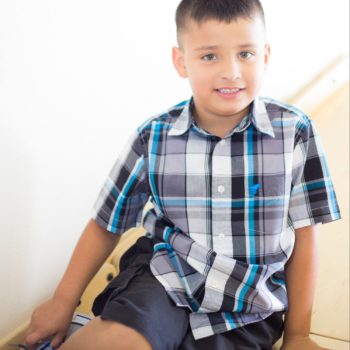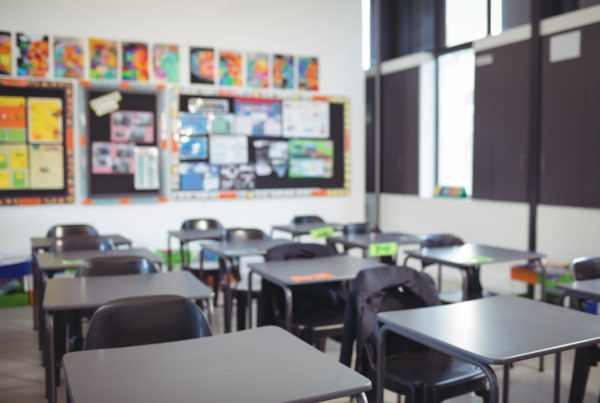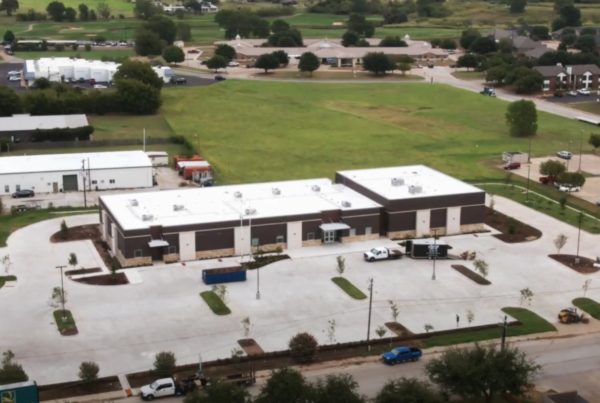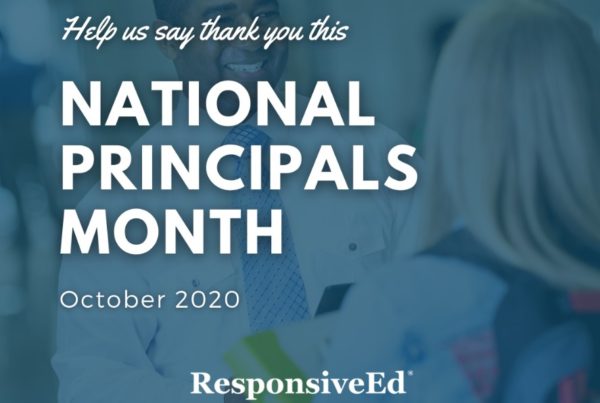Taking their seven-year-old son Gavin on a family vacation to Disneyland this year was a big step for the Martinez family. Gavin has autism, and his mother Ericka Martinez was afraid he wouldn’t be able to sit still for the three-hour plane ride or would get lost and not be able to communicate with people.
“He did really well. We are able to do so much more with him now. We used to have to do things separately with my older son. So having Gavin progress so far that we can do things with the whole family is great,” says Mrs. Martinez.
Gavin was diagnosed with autism at three years old, and she has found real support for her son’s complex needs at ResponsiveEd’s Foundation School for Autism®.
The Foundation School provides early intervention for children ages three through seven so that they can transition to a regular school. At the age of four, Gavin started at the Foundation School for Autism with less than five words in his vocabulary. He is now working on talking in sentences, and he is reading simple books independently.
In class, teachers focus on overcoming the language delay that is common to autism. For Gavin, developing the ability to communicate verbally was the key to improved behavior.
“His behavioral issues in the beginning were caused by his inability to express himself. He would get frustrated and yell a lot. As he has gone through the years, his ability to express himself with language is no longer an issue. We don’t have those kinds of outbursts any more,” said Mrs. Martinez.
Peggy Derby was Gavin’s teacher when he first came to the school. Now as his first grade teacher, she has seen a significant improvement in Gavin’s communication abilities and with it his independence and interaction.
“The progress he made is phenomenal. He went from a vocabulary of five words to talking in sentences. We are now working on having conversations. Before he would just ignore his peers when they tried to talk to him. Now he is actually responding and asking questions. Just the other day he was working on a puzzle with a peer and was asking for help to find a piece,” said Ms. Derby.
While Mrs. Martinez can see the improvements Gavin has made from how he has started to interact with his thirteen-year-old brother to holding short conversations, his teachers also keep her informed of his progress in the classroom.
“His teacher sends me videos of him at school so I can see what he is doing. Whenever he has a breakthrough, I get to see it. I get to see that he is actually interacting with his peers,” said Mrs. Martinez.
This is Gavin’s last year at the Foundation School for Autism. Students currently exit for other programs after first grade. He will start second grade in the fall at his local elementary school. Ms. Derby’s biggest concern as he gets ready to transition is that while Gavin might know how to do something, he might pretend he does not.
“We always suggest parents contact their new school and ask their future teacher to come and observe the student in our school so that they know who he or she is and what to expect. We always worry people will sell our students short. The transition of schools can mean they don’t perform their best in the beginning,” said Ms. Derby.
Gavin is communicating with his peers without extensive prompting, he loves doing his homework and is learning to tie his shoes. With his strong progress the past few years, his family is hopeful the trend will continue.
“I am super grateful we got into this school when we did. Early intervention for children with autism is very important. My son didn’t really speak much before he went there. Three years later he is a totally different kid. Everyone is so very amazed. My wish for the autism community is that every child has that opportunity for an early intervention,” said Mrs. Martinez.
It also means there may be more experiences like Disneyland in Gavin’s future.




